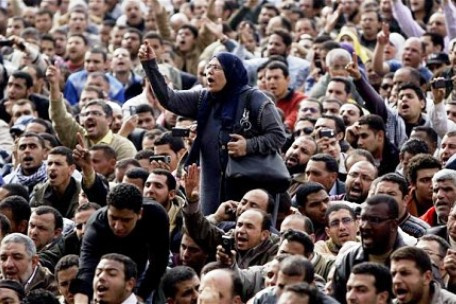The Yemen Uprising: A Saudi Arabian and American nightmare

In widespread protests, millions of Yemenis took to the street demonstrating in most parts of the country, especially in 30 of Sanaa’s city squares. The chants heard in these protests were different from before; taking a new direction by condemning Saudi and US meddling in Yemen.
Although opposition toward Riyadh and Washington has always been present in Yemen, it has intensified in recent days, which only adds to the Saudi and American governments’ concerns in Yemen.
The fact is that the US and Saudi Arabia, for different reasons, are unhappy with the Yemeni uprising, which is clearly reflected in both governments’ manners during the past year.
The US and Saudi Arabia may have different reasons to object to the uprising in Yemen, yet both countries had a common interest in ensuring the preservation of Yemen’s dictatorship.
As an American ally, Ali Abdullah Saleh’s regime was a blessing to the US, as his dictatorship’s policy was in line with American regional interests in the Middle East. Furthermore, with US aid, Saleh’s regime suppressed any anti-American movements in Yemen while ensuring Saleh’s survival.
New waves of revolution and uprising against the dictatorship of Yemen has put the US in a difficult position. Since the beginning of the Arab Spring, the US has tried to ride a popular wave by supporting the uprisings in Arab countries, yet in the case of demonstrations in Yemen, the US could not reveal a clear policy as it would conflict with its interests. Furthermore, the US feared the fate of Yemen’s uprising, as anti-American groups in the country are becoming increasingly popular and influential.
Saudi Arabia however had deeper concerns regarding the Yemeni uprising. The Saudi Government was concerned with having two uprisings in its neighboring countries; Yemen in the south, and Bahrain in the north. Riyadh’s horror led to a Saudi military intervention in Bahrain to suppress that revolution. Saudi Arabia has the same concerns regarding Yemen, as another revolt at its doorstep could trigger one within its own borders.
Despite their efforts, the US and Saudi Arabia were unable to suppress the uprising in Yemen, therefore in an attempt to maintain the current Yemeni governmental structure they proposed the ‘Cooperation Council for the Arab States of the Gulf’ plan, which would ensure the transition of power from Saleh to his dictator vice president as well as the participation of Yemeni parties in the presidential election.
Against his wish, Saleh ultimately gave in under Washington’s and Riyadh’s pressure and agreed to relinquish power to the vice resident. By hosting this project, the Saudi King openly revealed his intention of maintaining the current regime structure in Yemen, which would also ensure his own safety.
With the departure of the Yemeni dictator (and his escape to America), the first phase of this project was implemented. Furthermore, later this month the presidential election will be held. Yet the US and Saudi Arabia are concerned about the intensity of the current protests in the country.
Different political parties in Yemen have come to accept the Cooperation Council for the Arab States of the Gulf plan, yet the current demonstrations are led by the youth who have no affiliation to any of the country’s political parties. These demonstrators are demanding fundamental changes in the Yemeni regime and trials for the criminal heads of state.
With their presence in the streets, the people of Yemen are sending the dictatorship of Yemen and its supporters a strong message that they will persist in their revolutionary ways until they fully realize their goals. The people of Yemen see the current situation as a continuation of the previous dictatorship.

